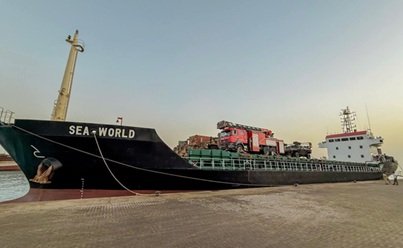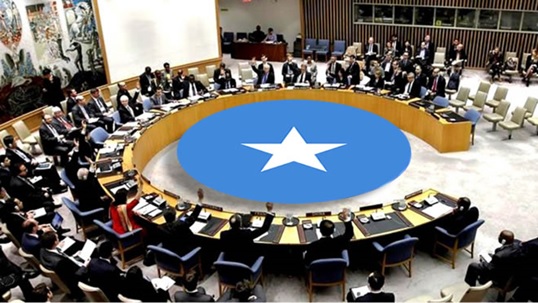By Abdi Farah (Juxa)
The United Nations’ December 2023 decision to lift the arms embargo on Somalia long considered a safeguard against renewed conflict was not only premature but perilous. While the Federal Government of Somalia (FGS) emerged as the primary beneficiary of this move, it had consistently failed to fulfill the responsibilities expected of a sovereign national authority. Rather than fostering national reconciliation and institutional rebuilding, Mogadishu’s centralized leadership had worked to erode the federalist framework envisioned in Somalia’s post-civil war roadmap. Since the collapse of the central government in 1991, Somalia pursued a political system that could accommodate its complex clan-based society.
The federal model imperfect but pragmatic was embraced as the best path forward, balancing regional autonomy with national unity. Yet over the past decade, successive federal administrations deviated from this vision. The most recent government focused on political consolidation over consensus-building. Instead of acting as a neutral facilitator, it wielded international support to sideline federal member states such as Puntland and Jubaland undermining the very essence of federalism.
This centralization campaign had dire consequences. In both Puntland and Jubaland, the FGS employed tactics of political sabotage and security interference. Federal officers were implicated in destabilizing incidents, including the December 2024 clashes in Raaskambooni and the July 2025 violence in Dhahar, Puntland. These were not isolated incidents but part of a troubling pattern aimed at weakening regional administrations for narrow political ends leaving extremist groups like Al-Shabaab and ISIS to thrive in the resulting vacuum.
The interception of the cargo vessel Sea Word—a Turkish arms ship by Puntland authorities off Bareedo’s coast and currently under investigation, has revealed dangerous flaws in Somalia’s lifted arms embargo. The incident highlights how weak federal institutions and chronic political instability create opportunities for exploitation by arms traffickers and militant groups such as Al-Shabaab and ISIS.

The justification to lift the arms embargo was to empower Somalia’s fight against terrorism. Yet in reality, weapons supplied to the FGS often fell into the hands of insurgents. Through battlefield losses, corruption, or defection, the Somali National Army failed to secure its arsenals. The same pattern was witnessed in Libya and South Sudan, where early access to arms fueled warlordism and deepened internal conflict. Somalia, fractured and lacking adequate oversight mechanisms, followed a similar trajectory. This was exacerbated by the international community’s flawed approach of treating the FGS as the sole legitimate security partner. Arms and aid flowed exclusively through Mogadishu, emboldening authoritarian tendencies while sidelining legitimate actors across the federal landscape.
Functional administrations in Puntland, Jubaland, and others were excluded from key security and state-building processes. As a result, international assistance inadvertently became a weapon of internal repression rather than a means of fostering stability. The cost of this miscalculation was borne by ordinary Somalis. They endured growing insecurity, economic decline, and a political elite more focused on power struggles than progress. In this deteriorating environment, lifting the embargo without safeguards, accountability mechanisms, or inclusive frameworks did not bring stability it magnified the nation’s vulnerabilities. What was needed instead was a more measured, inclusive approach. A conditional and calibrated security policy one that included federal member states, reinforced arms monitoring mechanisms, and ensured transparency could have laid the groundwork for a stronger Somalia. The arms embargo should have remained in place until robust verification systems were in place to prevent diversion of arms to militants or their misuse in domestic rivalries.
Furthermore, Somalia’s path to peace required diplomacy, not militarization. Mediation efforts should have extended beyond political elites to include civil society, traditional elders, women’s networks, and regional stakeholders. A reaffirmation of power-sharing arrangements, restoration of constitutional order, and genuine respect for federal entities were essential. Guns cannot replace governance. Lasting peace emerges from inclusion and legitimacy not from the unchecked distribution of weaponry. The international community also bore responsibility. By propping up a centralized model and neglecting Somalia’s federal structure, it contributed to institutional breakdown and political mistrust. Donors and partners must now reflect on this error and recalibrate their engagement strategy not in favor of centralized control, but toward a balanced, accountable federal framework anchored in rule of law and local ownership.
In hindsight, lifting Somalia’s arms embargo without the proper political and institutional safeguards was a grave mistake. It strengthened the wrong actors, sidelined federal voices, and pushed the country closer to renewed fragmentation. Rebuilding Somalia’s security sector remains vital but it must go hand in hand with accountability, inclusivity, and constitutional order. Anything less will turn weapons of defense into tools of division.
Conclusion
Somalia’s future cannot be secured through the unmonitored flow of arms or the empowerment of a centralized authority at the expense of federal harmony. The decision to lift the arms embargo, absent the necessary political maturity and institutional safeguards, has already begun to erode the fragile gains made since the civil war. It emboldened factions in Mogadishu while marginalizing the very federal member states that have upheld relative stability.
The international community, too, must reckon with its role in enabling this imbalance. Moving forward, rebuilding Somalia must rest on inclusive governance, regional cooperation, and the rule of law not on weapons distributed without oversight. If these lessons are ignored, Somalia risks relapsing into deeper conflict, undoing decades of diplomatic and developmental efforts.
Abdi Farah (Juxa)
Email: Email: juxafarah@gmail.com


Leave a Reply